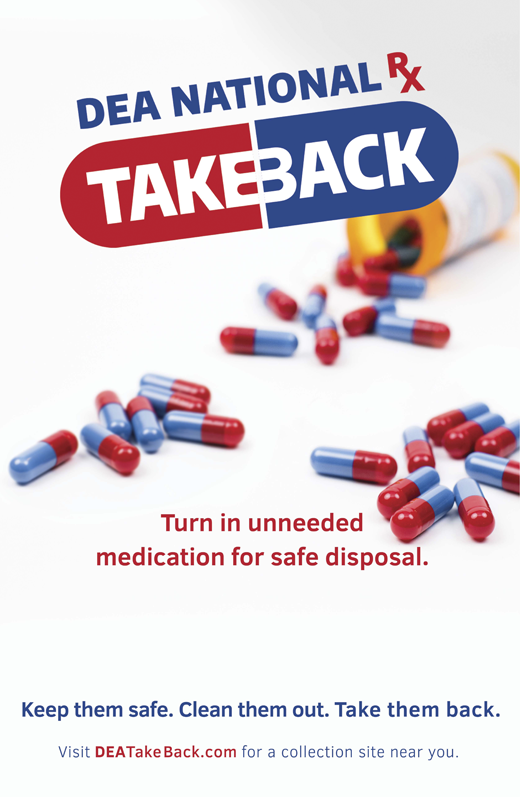Disposal of Expired Medications
|
|

It is important to dispose of expired medication and there are a number of locations where this can be done safely and in accordance with local laws. The U.S. Drug Enforcement Agency provides a tool you may use to find Controlled Substance Public Disposal Locations, where expired or unneeded medications may be safely disposed of.
It is important to check for expired medications because they pose potential threats. Expired medication may lose potency and effectiveness, rendering it less capable of treating life threatening ailments. Proper disposal of expired medication can also help safeguard against accidental ingestion, misuse, or abuse, particularly in households with children or individuals prone to substance abuse.
Common Reasons For Expired Medications
There are a number of common reasons why someone may have expired medications in their home:
1. Forgetfulness: People may forget to check the expiration dates of their medications and continue to keep them even after they have expired.
2. Change in medication regimen: If a person’s doctor changes their medication or dosage, they may no longer need the old medication, leading to its expiration in the home.
3. Unused prescriptions: Sometimes people are prescribed medications but do not take the full course or stop taking them for various reasons. These leftover medications may eventually expire.
4. Over-the-counter medications: Similar to prescriptions, over-the-counter medications like pain relievers, cough syrups, or allergy medications may go unused before their expiration date.
5. Stockpiling medications: Some individuals may stockpile medications during times of uncertainty or because they anticipate needing them in the future. However, if not used in a timely manner, these medications can expire.
6. Change in health conditions: If a person’s health condition changes or improves, they may no longer require certain medications, resulting in expiration.
7. Discontinued medications: Pharmaceuticals may occasionally discontinue certain medications, leaving people with expired supplies.
Some Need Help Checking For Expired Medications
Certain groups of people may be more at risk of having expired medications in their homes. These include:
1. Elderly individuals: Older adults may have multiple medications prescribed for various health conditions, leading to a higher likelihood of having expired medications if they are not regularly reviewed and discarded.
2. Individuals with chronic health conditions: People with chronic illnesses often have long-term medication regimens. If they do not regularly review and discard expired medications, they may accumulate them over time.
3. Individuals with multiple prescriptions: People who take multiple prescription medications may have a higher risk of having expired medications. This can occur if some medications are no longer needed, or if dosages change over time.
Sometimes it can be difficult to identify particular pills, if they are not in the prescription bottle, or in the wrong prescription bottle. There is an online tool for pill identification, that can help you identify these “mystery pills”, using a national database. The tool allows you to search by imprint, shape, and or color of the pill.
You can find more resources related to primary health care and medication by selecting the “Primary Medical Care” and or “Medication” category tab on our Social Service “Utilization Library” page.



